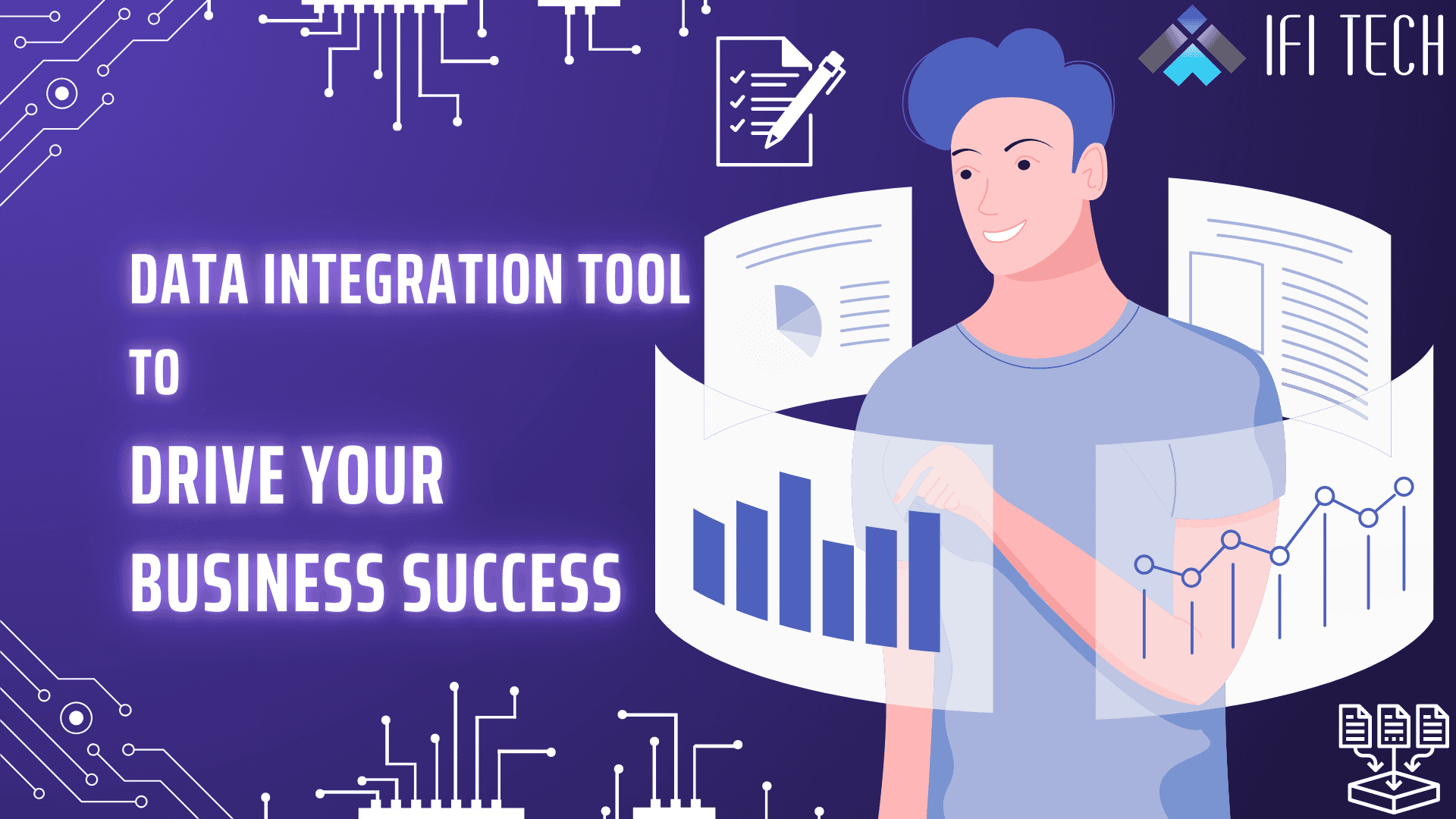In today’s data-driven world, data integration directly impacts business value. It is an advanced process that turns raw data into a valuable resource for businesses. However, when it comes to data integration selecting the right tool becomes a key decision that can impact business efficiency and decision-making. The best Microsoft solution partners like IFI Techsolutions have the capacity to create a consistent workflow for efficient business practices in 2025.
Before we move ahead with how you can identify the best Microsoft data integration tools, let’s learn about data integration and the need for data integration tools.
What is Data Integration?
Data integration is the procedure that combines data from multiple sources and merges it for a view that is more unified and seamless. Businesses need data integration to make the best of their data and to transform raw information into actionable insights. This further drives insightful decision-making, better customer experiences, and faster expansion into new markets. However, the complexity of enterprises and the vast amounts of data available in various forms makes data integration much more complicated.
Data integration tools play a vital role here in ensuring seamless data access and delivery. Applications can interact much faster and effortlessly with efficient data integration tools. The need for data integration tools increases as businesses increasingly prioritize advanced analytics, data accuracy, insightful reporting, and business intelligence.
Ready to get started?
Seamlessly Connect, Transform, and Scale—Power Your Cloud Strategy with Smart Data Integration!
Tips to Pick Data Integration Tools
Know Your Integration Needs
Your integration requirements can be as unique as your business. Identify crucial components like different data sources, the volume of the data to be handled, and the level of complexity surrounding integration. Different integration approaches like batch processing, real-time processing, and cloud-to-cloud integration might be required for your business. Make sure your integration provider offers you a custom solution for your business based on your unique goals.
Check Key Features and Capabilities
A robust integration tool must have outstanding capacity for streamlining operations. Key features you may consider:
- Support for multiple data sources
- Metadata management
- Data deduplication
- Handling unstructured data
- Scalability
Consider System Integration Methods
Data integration is just one part of the bigger picture. System integration is critical for overall digital transformation. There are four system integration methods, each catering to particular business requirements:
Vertical Integration: This involves breaking down silos to bring together unrelated subsystems into a unified functional unit.
- Horizontal Integration: An ESB or Enterprise Service Bus is used to create a unified application layer.
- Star Integration: Utilizes point-to-point integration method to interconnect systems and subsystems.
- Common Data Format: This format generally relies on a singular data format.
Choosing a data integration tool that aligns with your preferred system integration method will help create a cohesive IT infrastructure.
Evaluate Integration Interface Options
You can choose from a variety of connector options available, as follows:
- B2B/EDI (Electronic Data Interchange)
- RESTful and SOAP APIs
- Custom development options
Assess the Impact of Current and Future Systems
An apt data integration tool must guarantee to enhance your current system and not disrupt it. Check for the possibilities of compatibility issues by evaluating how a tool would interact with your current system. Moreover, your data integration tool is supposed to adapt to your evolving data processing needs without any requirement for constant overhauls.
Prioritize Security and compliance
Data integration involves the transfer and processing of sensitive and critical data. Therefore, you must look for a data integration tool that prioritizes the following security measures:- End-to-end encryption
- Role-based access control
- Industry-standard compliance
Opt for Cloud-based Solutions
Cloud-based data integration tools offer better versatility, scalability, and cost-effectiveness when compared to conventional on-premise solutions. They are perfect for businesses relying on SaaS apps and hybrid IT infrastructures since they facilitate smooth cloud-to-cloud and cloud-to-ground integrations.
Look for Strong Support and Expertise
It is as crucial to choose a reliable supplier as choosing the right tool. The following factors ensure the reliability of your supplier:- Comprehensive documentation and training resources
- 24/7 customer support
- A track record of successful implementations
Ready to get started?
Seamlessly Connect, Transform, and Scale—Power Your Cloud Strategy with Smart Data Integration!
Make the Right Choice for Seamless Data Integration!
Advanced cloud integration tools have the capacity to enable businesses to connect new partners and applications twice as fast as traditional methods. Cloud-based solutions and strong vendor support further enhance the reliability of your integration process. Partnering with experienced Microsoft solution providers like IFI Tech can help businesses in 2025 achieve optimized workflows and data-driven success. Invest wisely in the right data integration tool and pave the way for smarter decision-making and future growth.












